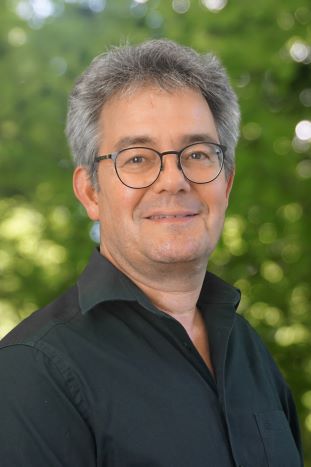KONTRIOL – Concentrates from drinking water treatment – Approaches to solving the technical, legal and economic obstacles to the use of NF/RO processes in drinking water treatment

Funding:

Principle investigators at the Goethe University, Department Evolutionary Ecology & Environmental Toxicology (E3T)
- Prof. Dr. Henner Hollert, Evolutionary Ecology and Environmental Toxicology, Goethe University Frankfurt
- Dr. Sabrina Schiwy, Evolutionary Ecology and Environmental Toxicology, Goethe University Frankfurt (Coleiterin)
Coordination at the Goethe University, Department Evolutionary Ecology and Environmental Toxicology (E3T)
- MSc Sarah Johann
Project process an der Goethe University Frankfurt, Evolutionary Ecology and Environmental Toxicology (E3)
- Simone Hotz
- Holger Geupel
Network coordinator
- Dr. David Schwesig und Dipl.-Ing. Anja Rohn, IWW Rheinisch-Westfälisches Institut für Wasserforschung
Project Partner
- Dr. Frank Sacher, DVGW Deutscher Verein des Gas - und Wasserfachs e.V.: DVGW-Technologiezentrum Wasser, Karlsruhe (TZW)
- Prof. Dr. Mathias Ernst, DVGW-Forschungsstelle TUHH (TUHH)
- Prof. Dr. Stefan Panglisch, Lehrstuhl für Mechanische Verfahrenstechnik / Wassertechnik (MVT), Universität Duisburg-Essen
- Prof. Dr. Torsten Schmidt, Institut für Analytische Chemie (UDE-IAC), Universität Duisburg-Essen
- Prof. Dr. Sven-Uwe Geißen, Institut für Technischen Umweltschutz – Umweltverfahrenstechnik, Technische Universität Berlin (TUB)
- Martin Cornelsen, Cornelsen Umwelttechnologie GmbH (Cornelsen)
- Isidro Oviedo, Delta Umwelt-Technik GmbH, Teltow (Delta)
- Jan Stöpel, LAGOTEC GmbH, Magdeburg (LAGOTEC)
- Dr. Jens Lipnizki, LANXESS Deutschland GmbH (Lanxess)
- Dr. Christina Geißler, Solenis Technologies Germany GmbH (Solenis)
Kontrisol webpage: https://www.kontrisol.de
For drinking water treatment, membrane separation processes such as nanofiltration and reverse osmosis (NF and UO) are increasingly being used to reduce the concentration of hardness constituents, inorganic water constituents, natural organic substances or anthropogenic trace substances. NF and RO largely separate dissolved substances. Hence, both techniques have advantages compared to alternative processes such as activated carbon filtration or ion exchange. In the aspect of the removal of polar organic substances or combined process objectives the two techniques excess in hardness reduction and removal of trace substances. NF/RO processes produce different amounts of concentrate. To ensure trouble-free operation of the LF/RO separation stage, so-called scaling inhibitors (antiscalants, mainly phosphonates and carboxylates) are added. In recent years, the discharge of concentrates into a water body has been viewed increasingly critically by the authorities. This is particularly true if the concentrates contain high concentrations of anthropogenic trace substances, including added treatment substances like polyphosphonates and carboxylates or nutrient salts. The effects of the constituents of concentrates (including antiscalants) have not been sufficiently evaluated with regard to their toxic effects on the aquatic environment. Therefore, the ecotoxicological and human toxicological evaluation of the concentrates, treated waters as well as of known antiscalants will be investigated using a battery of effect-based methods. Furhermore, the mixture toxicity of organic trace substances and antiscalants will be examined. For this purpose, the acute toxicity in vivo towards algae, daphnia and early stages of zebrafish (Danio rerio) will be applied. As proxies for the long-term effects, endocrine activity will also be analysed using the in vitro ER-, AR- and GR-CALUX as well as the H295R-S assay. Additionally, the mutagenic or genotoxic potential (reactive chemicals) will be determined using the Ames fluctuation assay and the micronucleus test. Furthermore, oxidative stress and behavioral test with early life stages of Danio rerio will be applied.
Contact

Goethe University Frankfurt
Biologicum, Campus Riedberg
Max-von-Laue-Str. 13
60438 Frankfurt am Main, Germany
Room: 3.319
Phone: +49 (0)69 798 42171
Fax: +49 (0)69 798 42161
Email: hollert(at)bio(dot)uni-frankfurt(dot)de
Former Affiliation:
http://www.bio5.rwth-aachen.de
- Studying at Goethe University
- International applicants
- Faculties
- Overview of study programmes
- Programme for refugees
- GRADE
- Goethe Business School (continuing education)
- Research at Goethe University
- Scientific news
- Goethe Welcome Center (for international researchers)
- Collaborative research projects
- Individual research
- Visiting fellowships
- Endowed chairs
- About the University
- News-in-brief
- University administration
- Campus locations
- Campus life
- University archives (German)
- Rhine-Main-Universities





